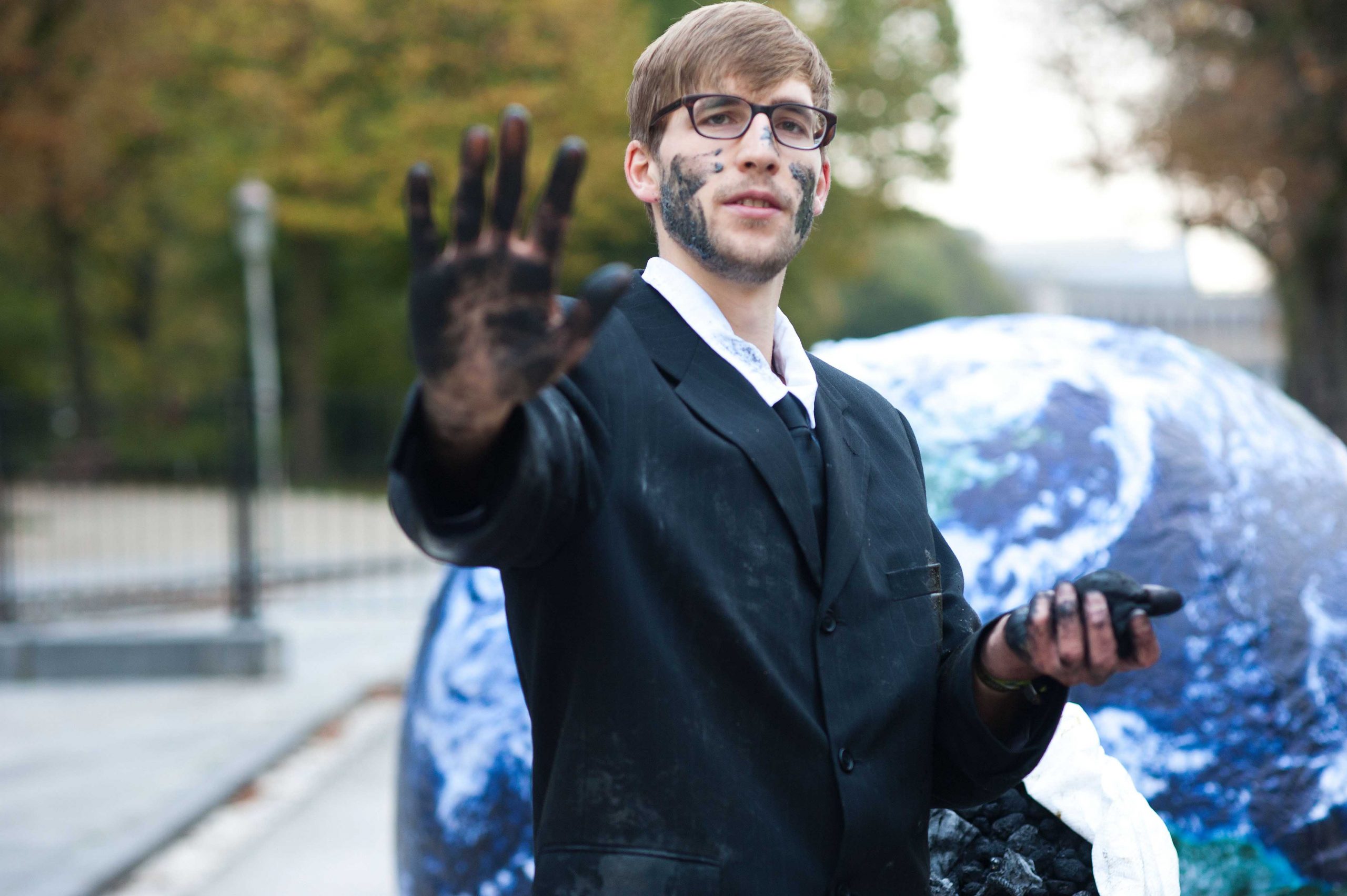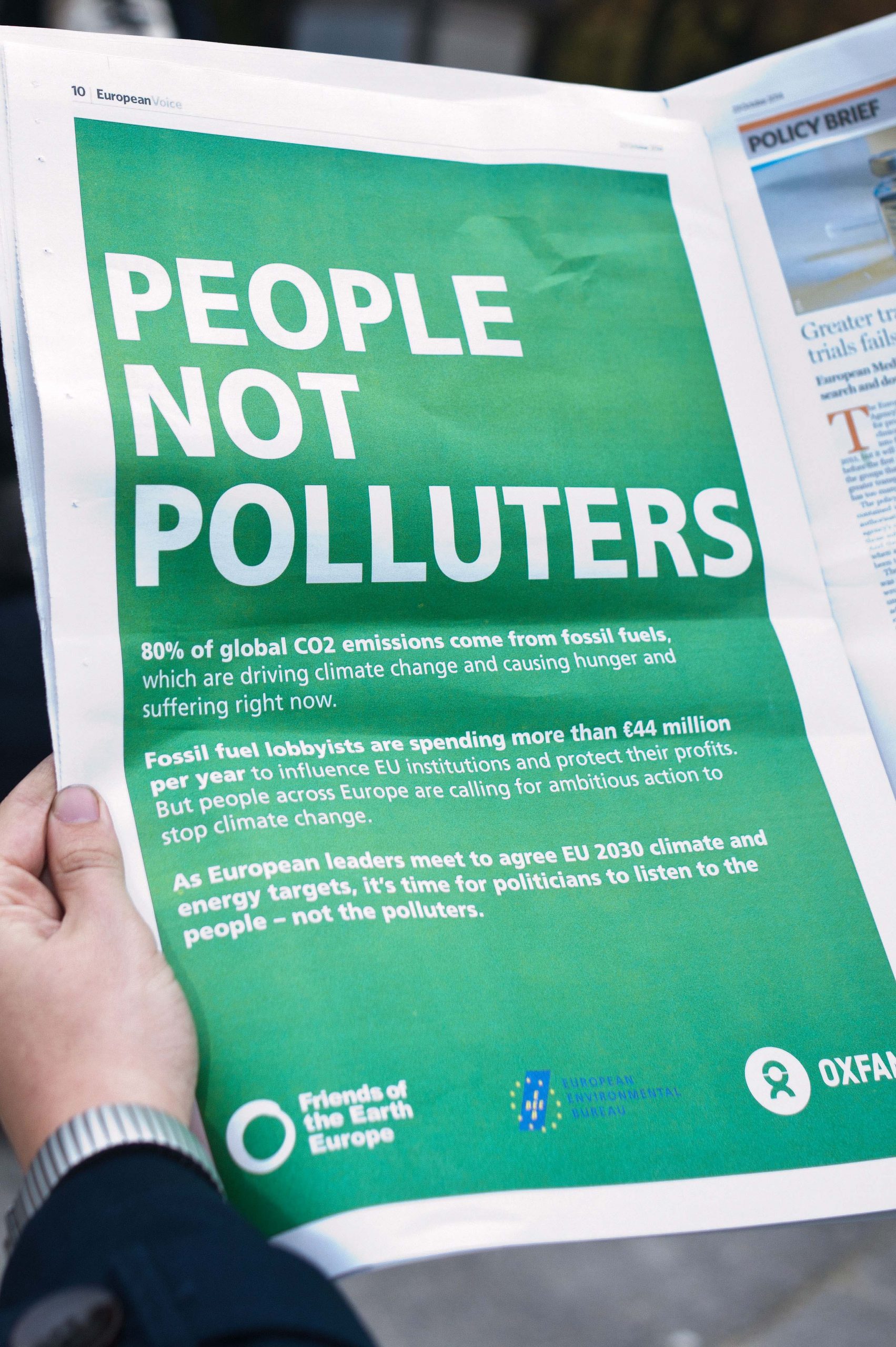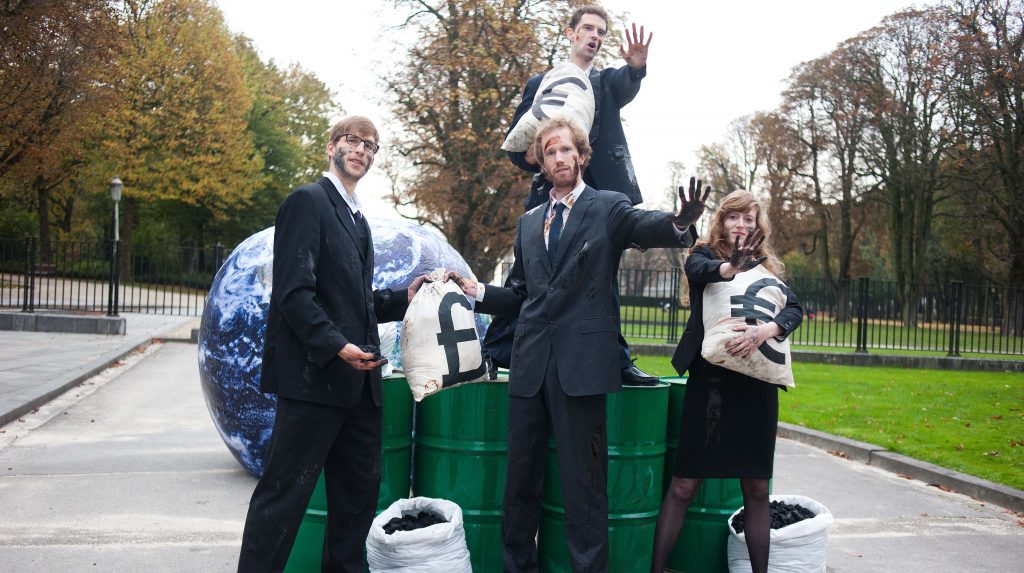Europe’s climate and energy plans benefit polluters, not people, Friends of the Earth Europe is warning as European leaders meet in Brussels.
The European Union’s 28 heads of state and government are meeting today and tomorrow to strike a deal on climate and energy targets for 2030.
Friends of the Earth Europe, Oxfam, Climate Action Network Europe, and the European Environmental Bureau were outside the summit to protest the lack of action being proposed to move Europe away from fossil fuels.
Dressed as corporate lobbyists, they constructed a huge blockade of leaky oil barrels and bags of coal, to symbolise the dirty energy companies blocking action on climate change. These polluting companies are spending millions every year to prevent the transition to a clean, community-controlled energy future.
Brook Riley, climate justice and energy campaigner at Friends of the Earth Europe said: “Our governments are sitting on their hands while climate change is already affecting more and more people across the globe. All the options for the EU proposed for climate action by 2030 put dirty industry interests ahead of citizens and the planet and will not bring about the transition to the clean energy system urgently needed.”

Leaders are trying to agree three targets: for reducing greenhouse gas emissions, increasing renewable energy, and saving energy.
Friends of the Earth Europe believes three binding targets is the only way to ensure Europe effectively fulfils its responsibilities to tackle climate change. Emissions must be reduced by at least 60% by 2030 to be in line with what the latest science says will effectively combat climate change, and there must be binding targets to reduce energy use by 50% and increase the share of our energy produced by renewables to 45%.
Additionally, the EU needs to provide financial and technological support for climate action in developing countries. Only action on this scale will bring about the energy transition needed to avoid the worst consequences of climate change.
European governments are only considering much less.
The latest indications are that the targets likely to be agreed are for 27% of Europe’s energy to come from renewable sources by 2030, and for 27% energy savings, unless member states take their responsibilities more seriously and agree tougher targets.
Brook Riley continued: “A 27% energy savings target is incomprehensible at a time when Europe is facing energy insecurity and is considering dangerous alternatives like shale gas and tar sands, and giving massive subsidies to nuclear, to meet demand.”
Molly Walsh, climate justice and energy campaigner at Friends of the Earth Europe, said: “The proposed renewables target represents barely more than business-as-usual and will send a dangerous signal to national governments that EU renewables policy is being abandoned. The EU can achieve a much higher renewable energy targets by involving citizens in producing and controlling their own energy but this potential must be recognised.”
Across Europe people are already involved in creating clean, community-owned energy. Community energy projects exist in many forms right across Europe – from solar villages in Spain, to co-operative wind farms in Belgium, and community energy saving schemes in the Czech Republic – but they need more political attention and backing to fulfil their potential.







